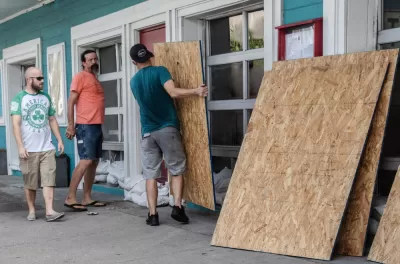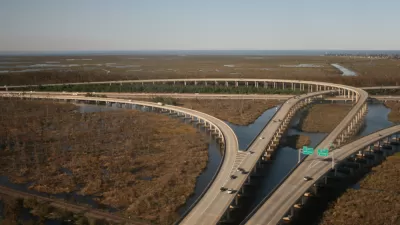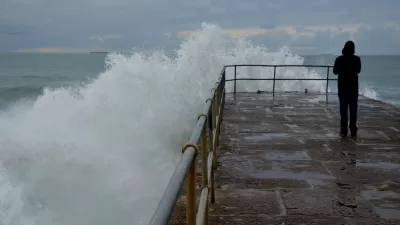The effects of climate change will vary depending on geographic location, so it's incumbent on states to prepare in their own, specific way. Not all states are taking that responsibility seriously, according to a new report.

Kate Elizabeth shares the details of a new report by the Trust for America's Health that finds the states most vulnerable to the effects of climate change are also the least prepared to deal with effects of climate change.
The report, a collaboration between the nonprofit and the John Hopkins Bloomberg School of Public Health, examines states’ ability to address the health effects of climate change based on their vulnerability, public health preparedness and existing climate-related adaptations. The results, researchers wrote, indicate that every state and the District of Columbia had done some sort of planning, but “there was significant variation and, in many places, a great deal of room for improvement.”
Of the 17 states deemed by the report to be most vulnerable to climate change, only two—North Carolina and Arizona—are also ranked among the most prepared. "Eight of the remaining 15—Tennessee, Georgia, Kentucky, South Carolina, Texas, Mississippi, Oklahoma and West Virginia—ranked among the states least prepared to handle the negative health effects associated with climate change," according to Elizabeth.
[Ed's note: Even "most prepared" is relative, and probably not enough for the coming changes, as exemplified by North Carolina.]
The report lists the most prepared states in the country as Colorado, Maine, Maryland, New Hampshire, Utah, Vermont and Wisconsin, along with the District of Columbia.
FULL STORY: Report: States Most Vulnerable to Climate Change Are Among the Least Prepared

Trump Administration Could Effectively End Housing Voucher Program
Federal officials are eyeing major cuts to the Section 8 program that helps millions of low-income households pay rent.

Planetizen Federal Action Tracker
A weekly monitor of how Trump’s orders and actions are impacting planners and planning in America.

Ken Jennings Launches Transit Web Series
The Jeopardy champ wants you to ride public transit.

Philadelphia Is Expanding its Network of Roundabouts
Roundabouts are widely shown to decrease traffic speed, reduce congestion, and improve efficiency.

Why Bike Lanes Are Good: An Explainer for the US Transportation Secretary
Sean Duffy says there’s no evidence that bike lanes have benefits. Streetsblog — and federal agencies’ own data — beg to differ.

California Invests Additional $5M in Electric School Buses
The state wants to electrify all of its school bus fleets by 2035.
Urban Design for Planners 1: Software Tools
This six-course series explores essential urban design concepts using open source software and equips planners with the tools they need to participate fully in the urban design process.
Planning for Universal Design
Learn the tools for implementing Universal Design in planning regulations.
Ada County Highway District
Clanton & Associates, Inc.
Jessamine County Fiscal Court
Institute for Housing and Urban Development Studies (IHS)
City of Grandview
Harvard GSD Executive Education
Toledo-Lucas County Plan Commissions
Salt Lake City
NYU Wagner Graduate School of Public Service





























